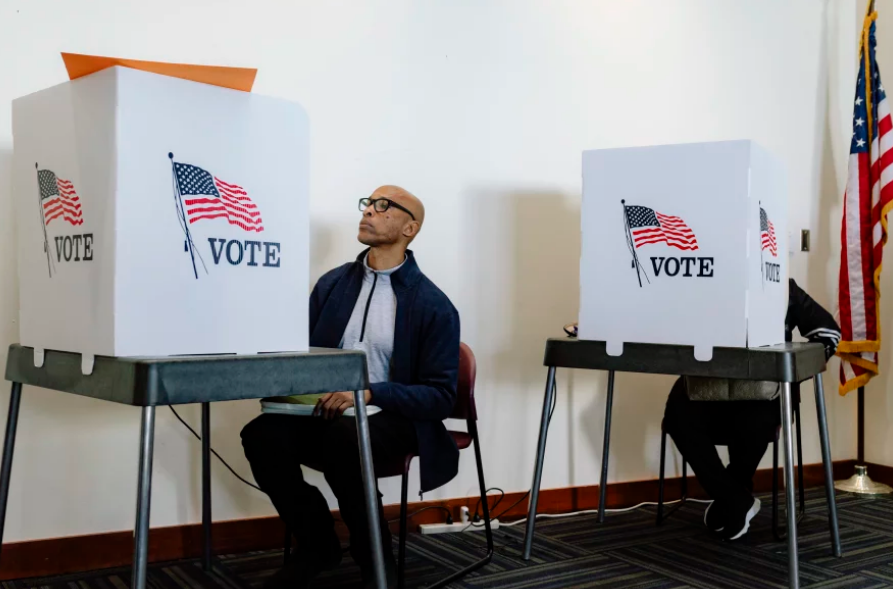Election Day - Voting for Those Who Can't
Formerly incarcerated first-time voters also casting their votes for those who can't

State felony disenfranchisement laws keep millions of Americans from voting. These laws aren’t just antidemocratic. They send the message that the voices of individuals returning to their communities don’t count. By and large, these voting bans disproportionately affect Black Americans.
An estimated 4 million U.S. citizens are unable to cast a ballot, according to a recent report from The Sentencing Project, and further estimates that 1 in 22 Black Americans of voting age can’t vote, three and a half times that of other Americans.
We can change this. Since 2018, a growing number of states have changed their laws, either through constitutional amendment, legislation, or executive action, to allow more Americans with past convictions to vote. Other states are considering similar reforms, and voting rights restoration advocates aim to pass legislation that would re-enfranchise in federal elections the millions of Americans who are no longer incarcerated but still can’t vote.
This progress has not been without setbacks, emphasizing the need for the US Congress to step in and impose a national standard. In 2018, Florida voters passed a ballot measure that was expected to re-enfranchise about 1.4 million Floridians. But months later, the state enacted a law that severely curtailed the measure’s impact by requiring those whose rights had just been restored to pay off certain court debts before they can vote. In 2023, Virginia governor Glenn Youngkin (R) reversed an executive action that had provided a pathway for citizens to regain their voting rights, making Virginia the only state that permanently bars all citizens with past convictions from voting.
NPR spoke with formerly incarcerated people who voted in the 2024 election.
“It went beautiful,” Craig Muhammad said as he walked out of a polling place in downtown Baltimore. “It wasn’t as hard as I thought it was,” he added. “But God … I’m 64 years old. I voted today for the first time in my life. Wow. I can’t wait to tell my sister.”
“I got so excited,” said Elizabeth Shatswell, a 40 year old in Washington State who was released from prison last spring after serving 23 years. “I never really thought that that was going to be a privilege or something that I could do. Voting specifically for me is a way to address the fact that I didn't have any autonomy over the decisions in my life for 23 years and that people continue today to not have autonomy over their lives,” she added.
In Los Angeles, Kunlyna Tauch, 36, is newly home after being released on October 2nd. “Being able to vote for the first time within my first three weeks feels like that country that I always loved, that I always knew was my own — it feels like it's finally mine,” he said.
All those down ballot races matter, especially when considering criminal justice reform and voting rights.
If you haven't yet voted today, there's still time before polls close. Please visit vote.org to learn everything you need to know about voting; checking your registration, where you can vote and register in the same day, poll locations and closing times. It's not too late, and if you're in line before poll closing times, you WILL be allowed to vote. Also, if anyone tries to stop, deter, or intimidate you, call or text the Election Protection Hotline at 1-866-687-8683.
You can read the full feature, "For the formerly incarcerated, voting for the first time is also about those who can't" at NPR's website.










